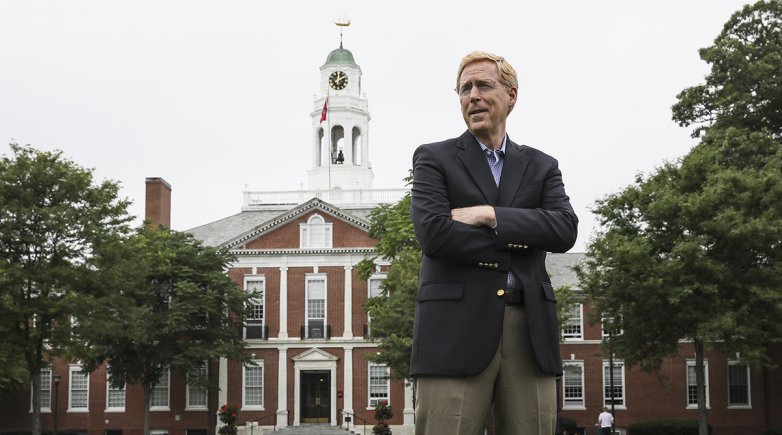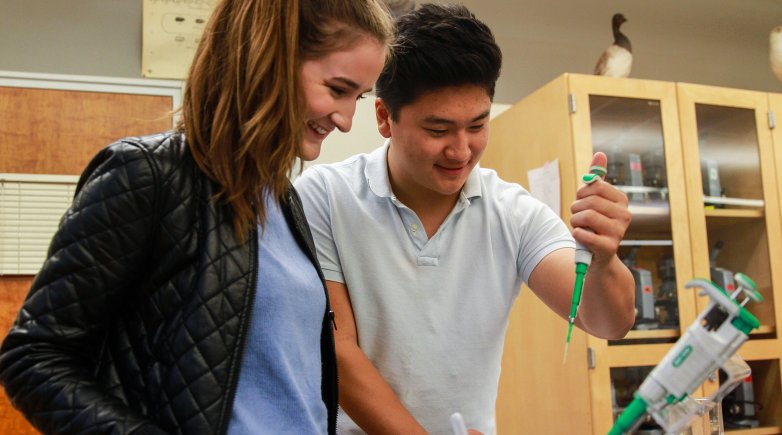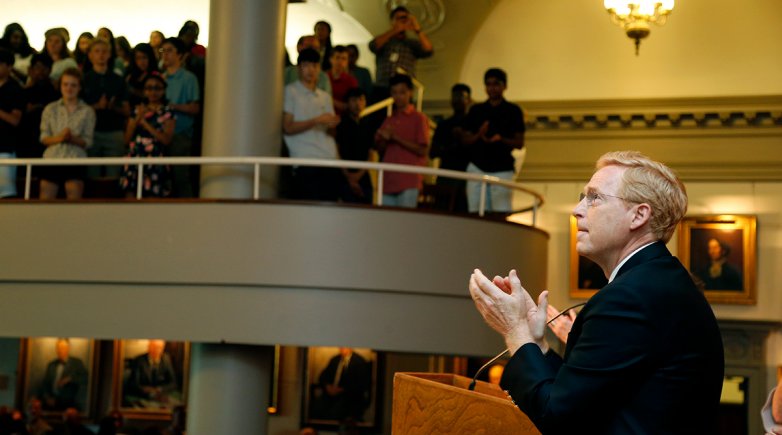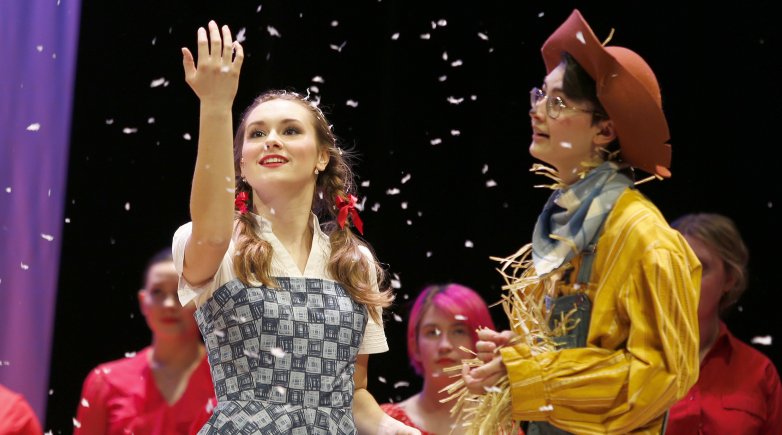I also find school communities to be incredibly exciting because of their missions and the opportunities to think creatively and engage in important issues. My associations at Exeter and at other schools have all been personally very enriching. As much as I try to contribute, I gain even more, in terms of friendships, experience and my own personal growth.
What is most familiar to you on campus from your time as a student? What has changed?
The energy and excitement of the student body and their commitment to academic exploration and achievement feels very familiar. It also is wonderful to see the same degree of dorm loyalty that existed when I was a student.
The faculty’s extraordinary commitment to their teaching also remains unchanged. They are an extremely talented group of professionals. The richness of their lives outside the classroom, and even outside of Exeter, is reflected in the meditations they give in Phillips Church, the poetry they publish, the music they compose, the books they write, and their many other professional and personal accomplishments — all of which add to the richness of our community.
The same can be said of all the other adults who, through their various duties and responsibilities, support the mission of the school. Their professionalism and commitment are very much the same as I remember from my student days. I have very clear memories of the friendliness of the custodians in my dorm, the person who handed me clean gym clothes and towels, several of the dining hall servers, and many others who supported me. This kind of meaningful engagement has not changed.
Yet, someone who has not been on the campus since the early 1970s would see immediately that something has changed: The students and faculty are far more diverse than 50 years ago — and far more inclusive. This year, the school hired its first director of equity and inclusion and created two coordinator positions to support our LBGTQ+ students and our Asian students. We are also in the second year of piloting two all-gender dorms to support our transgender and gender non-conforming population. Exonians lead more than 15 affinity clubs on campus, and Phillips Church serves as a gathering place for Christians, Muslims, Jews, Hindus and people of other spiritual beliefs. The progress we have made as a school toward being more diverse, inclusive and equitable is impressive. It demonstrates a real commitment to wholly and authentically embracing our mission of “youth from every quarter.”
There is, of course, more work to be done to create a community where everyone has an equal sense of belonging and equal opportunity to thrive. We need to redouble our efforts to attract and retain a diverse adult population. We need to hold intentional conversations that will help us achieve a greater sense of belonging and inclusiveness for everyone at Exeter.
How was Exeter transformative for you?
I considered myself a typical Exonian when I was a student. I cared about my work, wanted to do well and was thrilled to be here. I thought my dorm, Dunbar, was the best dorm on campus. I certainly worked hard and learned a great deal. I also made lifelong friends, had a lot of fun and grew in confidence each year.
I found that Exeter embodied the values I wanted to guide my life, ones that resonated from my childhood. My grandmother, Eva Augusta Rawson, was a person of great character and integrity, who exemplified hard work and humility. She raised five children and, after my grandfather died, went to work in a textile mill. She set an example for me which I have never forgotten — one that I found mirrored in the ethos of Exeter.
The school was the center of my life — because of my friendships, because of my teachers and because of the independence that I had. I was responsible for my own education and loved the academic challenge and how uncompromising the faculty were in wanting each of us to reach our potential, precisely because they cared about us and wanted us to succeed.
I was very aware of the gift of being here, of the privilege of being here; and I spent each summer basically waiting to come back. The school was not very diverse by today’s standards, but it was more diverse than any other environment in my life. Coming from a modest background and being on financial aid, the sense that this was a democratic institution where each student entered the classroom on an equal footing was very important to me.
For all of these reasons, I left the Academy with a deep gratitude for how my time here had changed the course of my life and a strong desire to do what I could to help Exeter do the same for others.
How do your goals as interim principal differ from those of principal, or do they?
In some sense, I am in the same position as any principal who intends to retire in two years. I have some near-term goals, and I will also initiate conversations that will extend well beyond my period of service.
My initial focus includes continuing the strategic initiatives work endorsed by the Trustees last year, which centers on the student experience and how to further enhance it. We are also in the second year of an institutional self-study as part of a multiyear reaccreditation process with the New England Association of Schools and Colleges.
Our first director of equity and inclusion, Dr. Stephanie Bramlett, started on July 1, as did I. Her success is a critical priority this year. Last January, the Trustees adopted a vision statement recognizing that the principles of diversity, equity and inclusion are critical to sustaining and strengthening our tradition of excellence in all aspects of life at Exeter. They stated, “our commitment is to teach the skills, model the behaviors, provide the resources and cultivate the environment of inclusion.” That work will be a significant focus of our efforts going forward.
I told The Exonian in an interview recently that my job is largely to pose questions, not to answer them. Collaboration is very important, especially at Exeter. I spent the first couple of months in this role doing a lot of listening and reading. I received nearly 100 emails from faculty and staff sharing their thoughts about where we are as a school and what we can do to make our school even stronger. I have attended dozens of meetings and chatted with my colleagues more informally on the pathways or in the dining hall. What is clear to me, what really unites all of us, is a shared commitment to the students and to their experiences while at Exeter.
How would you characterize Harkness’ relevancy in today’s world?
The qualities we seek to instill through the Harkness pedagogy are as important today as ever. Harkness teaches us how to listen, how to think critically, and how to express ourselves effectively and respectfully to those around us.
Listening is the critical skill on which a student’s personal involvement and success in and out of the classroom will depend. Certainly, as we look around the world, we can see a desperate need for more Harkness discussions. We need less talking at each other, more listening to learn from each other rather than to judge or apply labels, and more effort to reach a common understanding around our problems.
Harkness makes room for that. At Exeter, we have the chance to realize that our differences, and different perspectives, can be the very things that make life exciting. Our differences are how we express our common humanity. Understanding that — valuing it — is what I think Harkness drives us toward.
Over the last few decades, there has been growing awareness that our most pressing problems as a global society are interdisciplinary in nature and require interdisciplinary thinking. There’s room to grow here at Exeter in terms of how we encourage the kind of multidimensional thinking required to address, for instance, the environmental challenges that we face — which are part political, part economic, and part a matter of engineering and other scientific disciplines. The humanities, to a great extent, also inform how we think about those problems. I see multidisciplinary learning as one way our Harkness pedagogy is likely to grow in the coming years.
What do you perceive as Exeter’s greatest strengths today? What do see as opportunities for growth?
Our greatest strengths are the people who are here — both the students and the adults. It is a community of hard workers who share an incredible passion for education, a commitment to excellence, a boldness of thinking, and an openness to solving problems in new and different ways. Our strength is in our willingness to constantly challenge ourselves and to ask, ‘How well are we living up to our vision, to our mission?’
We must be open to imagining what Exeter could become tomorrow and not be too preoccupied with what Exeter is today. As the world changes, what is needed in an educational institution like Exeter changes as well. Our adaptability becomes increasingly important even as we strive to ensure that John and Elizabeth Phillips’ founding vision for the school remains intact.
Exeter alumni and parents are also critical points of strength for the school. Without their engagement through volunteerism, philanthropic support, mentorship and event participation (including, for example, speaking at assembly), Exeter would not be the school it is today.



